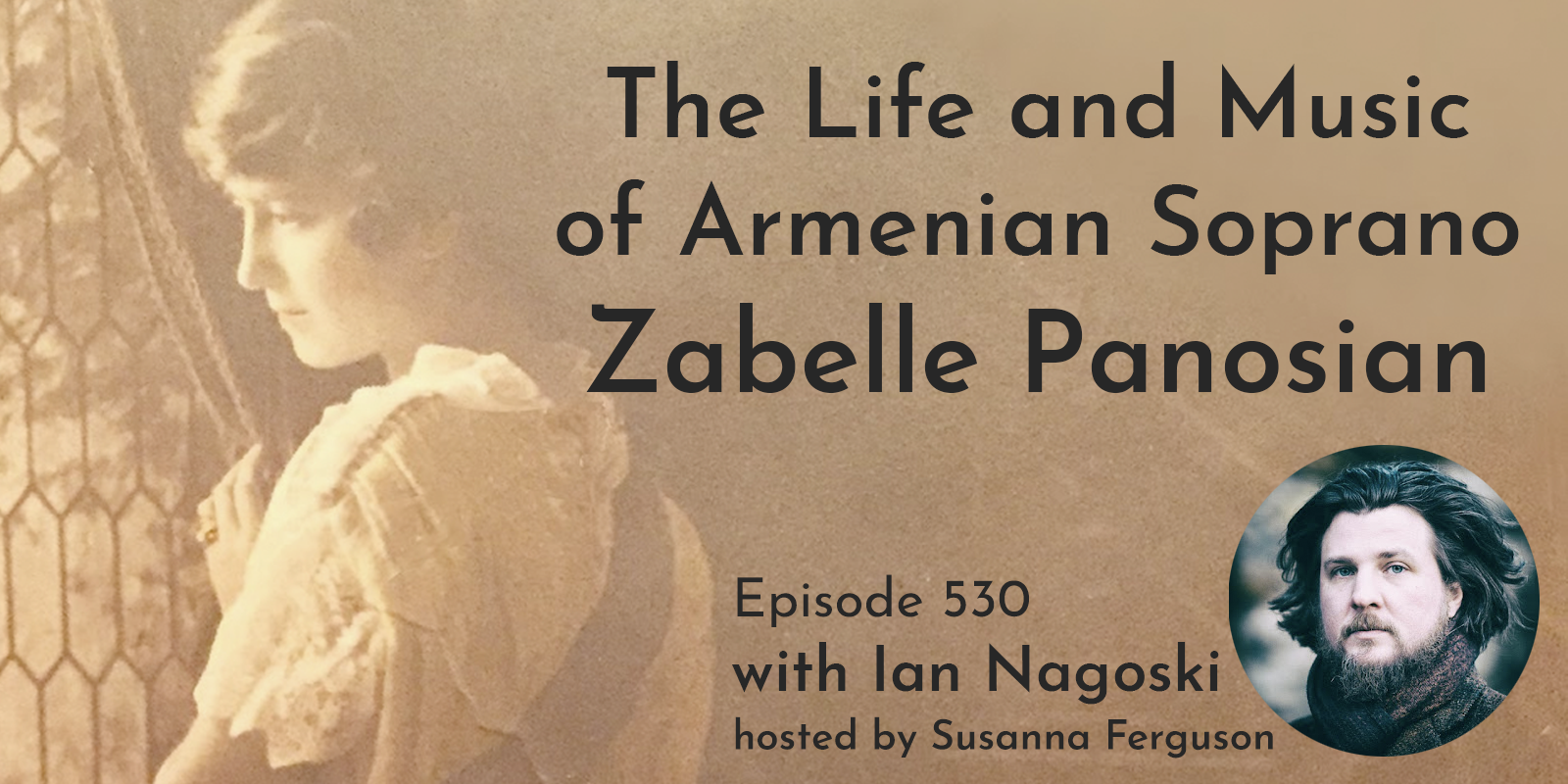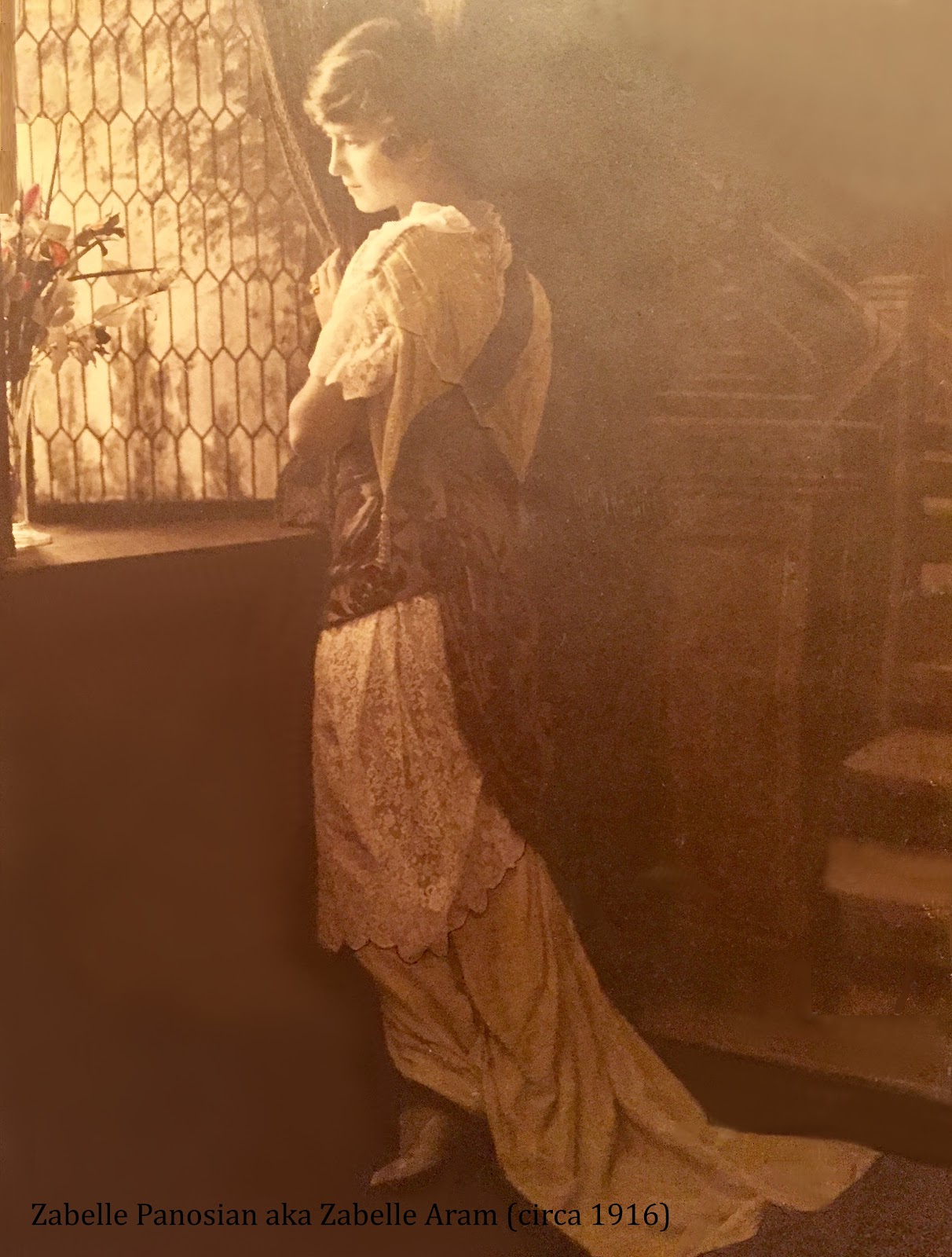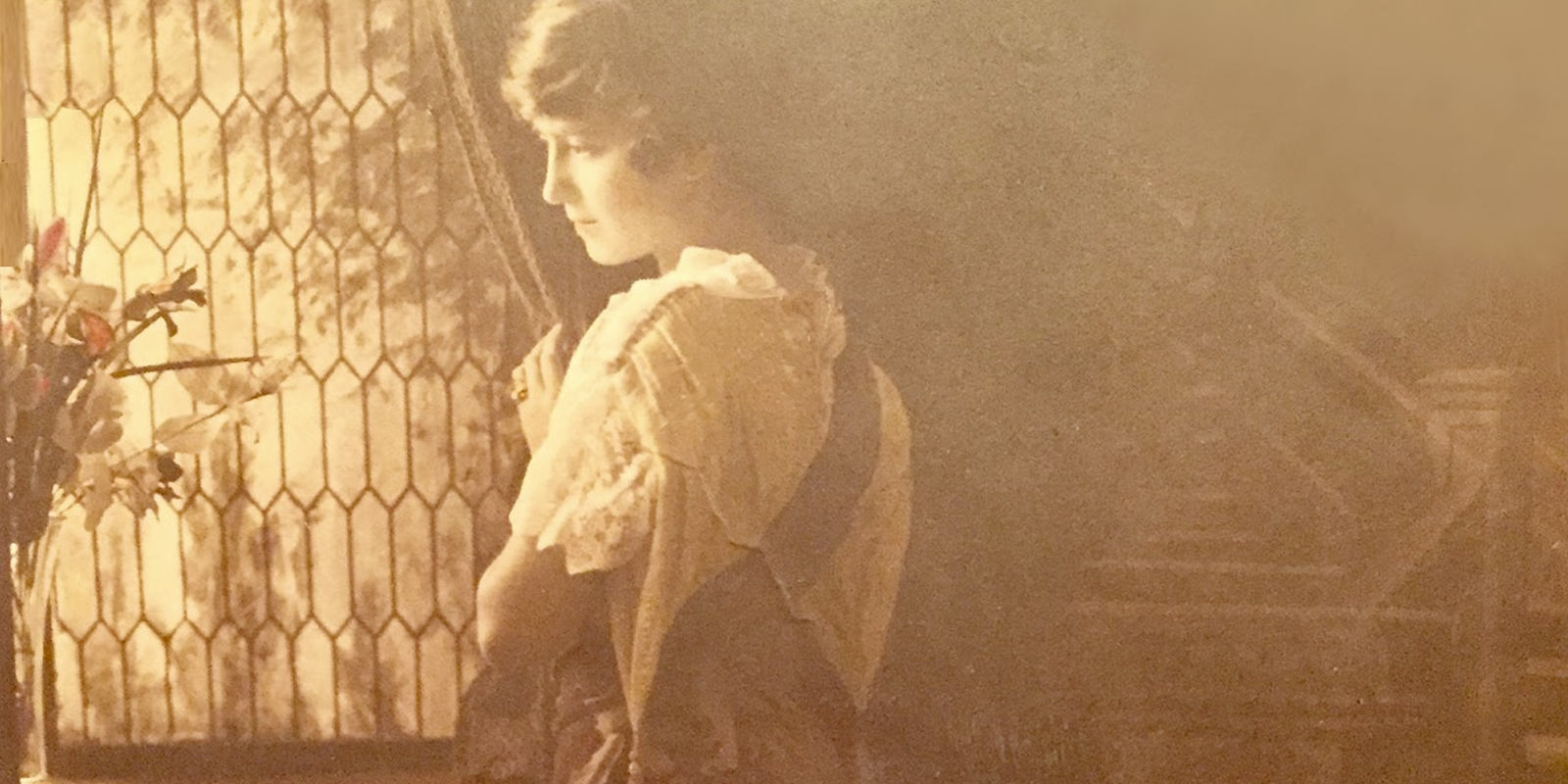The Life and Music of Armenian Soprano Zabelle Panosian
| Zabelle Panosian's ethereal music transfixed audiences from Boston to Paris in the early years of the twentieth century. Yet, by the 1960s, her work was all but forgotten. In this episode, we explore Panosian's life story and some of her exceptional music. What did it mean to leave behind an Ottoman homeland, only to watch the destruction of the 1915 Armenian genocide from afar? What was it like to be diva in Europe and an ambitious Armenian woman artist in the United States, only to be siloed into the category of "ethnic music" by major record labels as anti-immigrant sentiment rose? In this epsiode, we listen to many of Zabelle's songs to explore these questions and more with record producer and music researcher Ian Nagoski. Zabelle's story helps us to understand how and why 'serious artists' have been remembered or forgotten in the annals of American music, especially the immigrants among them.

 | Click for RSS Feed | 
|

|
Zabelle Panosian's ethereal music transfixed audiences from Boston to Paris in the early years of the twentieth century. Yet, by the 1960s, her work was all but forgotten. In this episode, we explore Panosian's life story and some of her exceptional music. What did it mean to leave behind an Ottoman homeland, only to watch the destruction of the 1915 Armenian genocide from afar? What was it like to be diva in Europe and an ambitious Armenian woman artist in the United States, only to be siloed into the category of "ethnic music" by major record labels as anti-immigrant sentiment rose? In this epsiode, we listen to many of Zabelle's songs to explore these questions and more with record producer and music researcher Ian Nagoski. Zabelle's story helps us to understand how and why 'serious artists' have been remembered or forgotten in the annals of American music, especially the immigrants among them.
Stream via SoundCloud
Contributor Bios
 |
Ian Nagoski is a music researcher and record producer in Baltimore, Maryland. He writes and lectures regularly and has produced reissue CDs, LPs, and digital releases for the Dust-to-Digital, Tompkins Square, Mississippi, Important, Sound American, and his own Canary Records. |
 |
Suzie Ferguson is Assistant Professor of Middle East Studies at Smith College. She writes and teaches on the history of gender, sexuality, and political thought in the modern Arab world. |
Credits
Episode No. 530
Release Date: 23 September 2022
Sound production by Suzie Ferguson
Digitized audio, images, and bibliography courtesy of Ian Nagoski
Release Date: 23 September 2022
Sound production by Suzie Ferguson
Digitized audio, images, and bibliography courtesy of Ian Nagoski
Further Listening
 |
Ian Nagoski | 412
6/1/19
|
American Music of the Ottoman Diaspora |
 |
Sato Moughalian | 471
8/13/20
|
David Ohannessian: Art, Exile, and the Legacies of Genocide |
 |
Jennifer Manoukian | 174
9/30/14
|
Education, Politics, and the Life of Zabel Yessayan |
 |
Vahé Tachjian | 204
10/21/15
|
Reconstructing Ottoman Armenian Life |
 |
Sylvia Alajaji | 461
4/23/20
|
Music and Silence in the Armenian Diaspora |
 |
Richard Breaux | 494
2/23/21
|
Musical Archives of the Midwest Mahjar |
Images
 |
| Zabelle Panosian, Front, ca. 1917-18 |
 |
| Panosian, Boston MA, Veradznootun newspaper, ca. Jan.-Feb. 1919. |
 |
| Panosian as Abishag from the Biblical pageant play The Chosen Kin (Boston Post, Jan. 24, 1920). |
 |
| Panosian ca. 1920, via the Tangian Photo Archive. |
 |
| Frontis ca. 1916, likely photographed by Aram Panosian. Via Varoujan Karentz. |
 |
| Montage of Panosian as mother with drawings of genocide orphans, advertisement in Bahag newspaper for a benefit concert on Jan. 31, 1919. Text reads, in part, 'From the depths of the desert arrive our orphans. They are the future of a new Armenia.' |
 |
| Adrina Otero souvenir card, signed in Berlin April 24, 1937. |
Select Bibliography
Harout Arakelian, Harry Kazelian, and Ian Nagoski. Zabelle Paonsian: I Am A Servant of Your Voice. Canary Books, Maryland, MA (2022).
Ada Pierce Chambers, In an Anatolian Valley. The Ryserson Press (1955).
Quaintace Eaton, The Boston Opera Company: The Story of a Unique Institution. Appleton-Century (1965).
Alan Jabbour et al, Ethnic Recordings in America: A Neglected Heritage. American Folklife Center, Library of Congress (1982).
Krikor Mkhalian (Ara Stepan Melkonian, translator), Bardizag and its People. Gomidas Institute (2014).
Richard K. Spottswood, Ethnic Music on Records: A Discography of Ethnic Recordings Produced in the United States, 1893 to 1942, Volume 5. University of Illinois Press (1990).











Comments
Post a Comment
Due to an overwhelming amount of spam, we no longer read comments submitted to the blog.